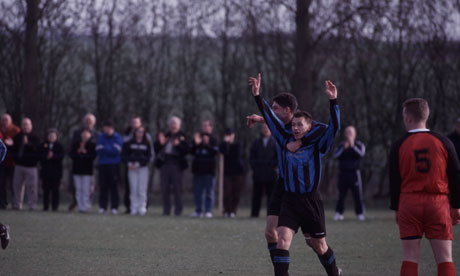I don’t think there is such a thing as a perfect CV. The idea is a bit of a misnomer. Ask any career coach or recruiter about which format you should use and you’ll get a different answer from each. There’s no right way to write a CV.
Actually, I think there’s an over-emphasis on their importance. Jobseekers spend hours redefining, refreshing, rewriting them. I believe that networking so that you get in front of the person with some hiring power is your first priority.
And the letter you write to a firm AFTER your interview is a more important document. Networking gets you in front of the interviewer; the CV is just an aide-memoire for the ensuing conversation, but the letter you write after you have met them could make a telling impression.
After the interview, write to your interviewer. Thank them for seeing you and review the main points of the interview in respect of the challenges and opportunities the company is facing and how you can help them address those issues.
But back to the CVs and how to make the most of them. In my experience, most people who interview others for jobs look closely at the CV on the way to the interview room. If you replied to an advert then, up to that point, the CV was probably just in the pile of those that matched the specification. So there’s no point putting it in fancy binding or a pretty cover because both will be ripped off and thrown away as soon as the CV is out of the envelope.
A CV can’t really be perfect or definitive; it’s a working document, an organic and flexible tool that evolves. It should always be written for a particular organisation or a particular job, so you must adjust the content to tell your readers what they want to hear (what they have asked for in their job description). Keep it plain, simple and make it easy for them to find the information they need. Having said that, you should always have one ready.
Add sparkle and drop names
Although I’ve tried to convince you that it is not really important, do try to inject some sparkle into your CV and give an employer a reason to meet you. Say something memorable about yourself to spark an interest in arranging to meet. Examples from some CVs we’ve seen recently include:
● A Lloyds broker who worked as part of Tony Blair’s delegation to China
● A marketing executive responsible for the introduction of Fosters lager into the UK, using the Australian actor Paul Hogan in the adverts.
Something like this quoted in your CV is really useful. Name-drop people you know or have worked with. You can use your life outside work. If you’ve done work for a trade association, have been published or undertaken public speaking engagements, mention it. Or if you’re studying for some extra-curricular, unusual or more interesting qualifications, put them in.
Dullsville
Don’t put cycling, walking or the theatre down as hobbies. Dull, dull and duller. Although all these activities are worthy and no doubt enjoyable, they don’t paint an exciting picture of you. You’re trying for an interview, not a date. And recruiters, like potential dates, know that playing pub football on a Sunday morning doesn’t really stretch your leadership skills or exercise your creativity.










